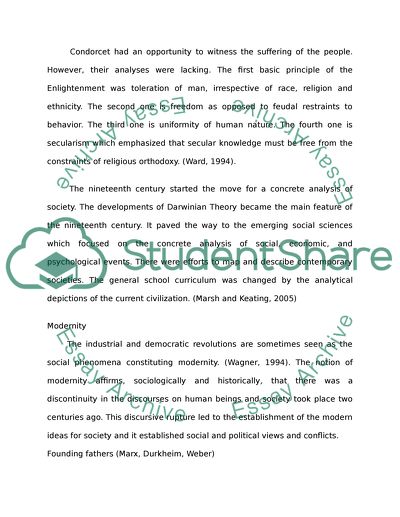Cite this document
(Social Anthropology According to Karl Heinrich Marx, Emile Durkheim, and Weber Essay Example | Topics and Well Written Essays - 1250 words, n.d.)
Social Anthropology According to Karl Heinrich Marx, Emile Durkheim, and Weber Essay Example | Topics and Well Written Essays - 1250 words. https://studentshare.org/sociology/1550264-explain-the-relationship-between-sociology-and-modernity-how-relevant-is-this-relationship-today
Social Anthropology According to Karl Heinrich Marx, Emile Durkheim, and Weber Essay Example | Topics and Well Written Essays - 1250 words. https://studentshare.org/sociology/1550264-explain-the-relationship-between-sociology-and-modernity-how-relevant-is-this-relationship-today
(Social Anthropology According to Karl Heinrich Marx, Emile Durkheim, and Weber Essay Example | Topics and Well Written Essays - 1250 Words)
Social Anthropology According to Karl Heinrich Marx, Emile Durkheim, and Weber Essay Example | Topics and Well Written Essays - 1250 Words. https://studentshare.org/sociology/1550264-explain-the-relationship-between-sociology-and-modernity-how-relevant-is-this-relationship-today.
Social Anthropology According to Karl Heinrich Marx, Emile Durkheim, and Weber Essay Example | Topics and Well Written Essays - 1250 Words. https://studentshare.org/sociology/1550264-explain-the-relationship-between-sociology-and-modernity-how-relevant-is-this-relationship-today.
“Social Anthropology According to Karl Heinrich Marx, Emile Durkheim, and Weber Essay Example | Topics and Well Written Essays - 1250 Words”. https://studentshare.org/sociology/1550264-explain-the-relationship-between-sociology-and-modernity-how-relevant-is-this-relationship-today.


